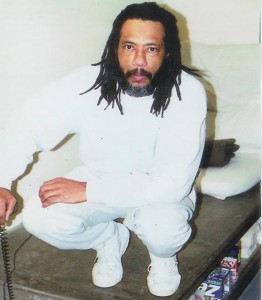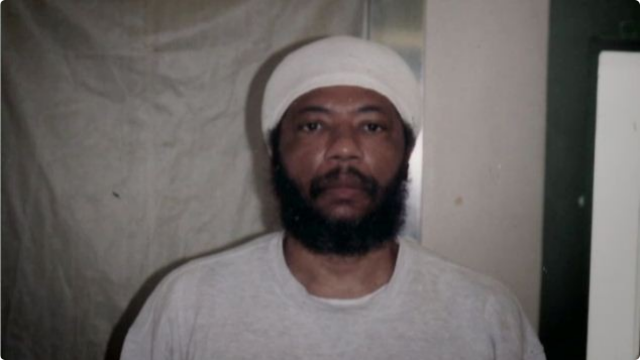Larry Hoover was born on November 30, 1950, in Jackson, Mississippi, but grew up in Chicago. When he was 12, Hoover became the leader of the Chicago gang the Supreme Gangsters, which merged with a rival gang to become the Gangster Disciple Nation. In 1973, Hoover was sentenced to 150-200 years in prison for killing a drug dealer. After he committed money laundering in prison, his punishment was increased to six life sentences.
Gangster Disciple
 Larry Hoover, also known as “King Larry,” was born on November 30, 1950, in Jackson, Mississippi. His parents moved the family north to Chicago, Illinois, when Hoover was 4 years old. By the time he was 12 years old, Larry was on the streets with his friends. Calling themselves “The Supreme Gangsters,” the group would often ditch school together and ride the El train around the city. Occasionally, they would engage in petty crimes, including stealing and mugging. His criminal activity soon evolved to shootings and assault.
Larry Hoover, also known as “King Larry,” was born on November 30, 1950, in Jackson, Mississippi. His parents moved the family north to Chicago, Illinois, when Hoover was 4 years old. By the time he was 12 years old, Larry was on the streets with his friends. Calling themselves “The Supreme Gangsters,” the group would often ditch school together and ride the El train around the city. Occasionally, they would engage in petty crimes, including stealing and mugging. His criminal activity soon evolved to shootings and assault.
As the gang grew, Hoover emerged as the natural leader. Along with rival gang leader David Barksdale, Hoover decided to merge their gangs into one: the Gangster Disciple Nation. In 1969, after Barksdale was killed in a shooting, Hoover took the reins of the Gangster Disciples, which now had control of Chicago’s South Side. Under Hoover’s rule, the Gangster Disciples took over the South Side drug trade, making more than $1,000 a day in profits.
By the age of 24, Hoover had been in and out of prison several times, and had endured six separate shooting attempts on his life. Each time, he survived, and doubled his retaliation efforts. But on February 26, 1973, Hoover went too far. He and another Gangster Disciple, Andrew Howard, shot and killed dealer William Young after a heated argument over money. Both Hoover and Howard were arrested, and sentenced to 150 to 200 years in prison. Hoover was sent to Stateville Correctional Center in Crest Hill, Illinois, to serve out his term.
But Hoover’s power seemed only to grow inside Stateville. He began protecting other inmates, who then became devotees and new recruits for the Gangster Disciple Nation. His control over the other prisoners was recognized by the warden’s office, which began looking to Hoover as a positive influence to quell riots and uprisings within the prison system.
Under the “New Concept” of the organization, Hoover changed the meaning of GD from “Gangster Disciple” to “Growth and Development.”
Growth and Development
Hoover, inspired by the biography of Mayor Richard J. Daley, began discouraging violence among his followers. Instead, he made education mandatory for members of the Gangster Disciples, and instructed his army to “go to school, learn trades and develop … talents and skills, so that we will become stronger in society.”
Changing the GD of “Gangster Disciple” to “Growth and Development,” Hoover’s move to reform began gaining positive attention from the outside. Growth and Development created nonprofit organizations that registered voters, a music label that helped needy children, a series of peaceful protests to fight the closing of public programs, and even a clothing line for charity.
Dubious prison officials, however, saw Hoover’s good intentions as a ploy to get out of prison and resume his illegal activities. While friends and allies on the outside lobbied to get Hoover paroled for his contributions to society, law enforcement agents say Larry was finding new ways to expand his criminal ventures. The Gangster Disciples had grown to more than 15,000 members in at least five states. Their drug profits had also risen well into the millions of dollars—all of which gang members attributed to the leadership of Larry Hoover.
Transferred to a minimum security prison in Vienna, Illinois, Hoover was living a luxurious lifestyle that involved new clothes, expensive jewelry, specially prepared meals, and private visitations from friends and loved ones. Suspicious authorities began wire-tapping Hoover’s private meetings, and discovered that he was running the Gangster Disciple group from within the prison system.
Worse still, informants revealed that all of Hoover’s nonprofit organizations were actually fronts for laundering drug money. According to the testimony of Gangster Disciple members, none of the proceeds for any of the so-called charities actually went to helping anyone in need.
Indictment
On August 31, 1995, after a five-year undercover investigation by the federal government, Hoover was indicted for drug conspiracy, extortion, and continuing to engage in a criminal enterprise. He was arrested at the Vienna Correctional Center by federal agents, and moved to the Metropolitan Correctional Center in Chicago to stand trial.
In 1997, Hoover was found guilty on all charges, and sentenced to six life sentences. Hoover is currently serving his sentence at the United States Penitentiary Administrative Maximum Facility in Florence, Colorado.
This was originally published on The Pen Hustler by Brandy Cavalli who used Biography.com as a source for this piece.



